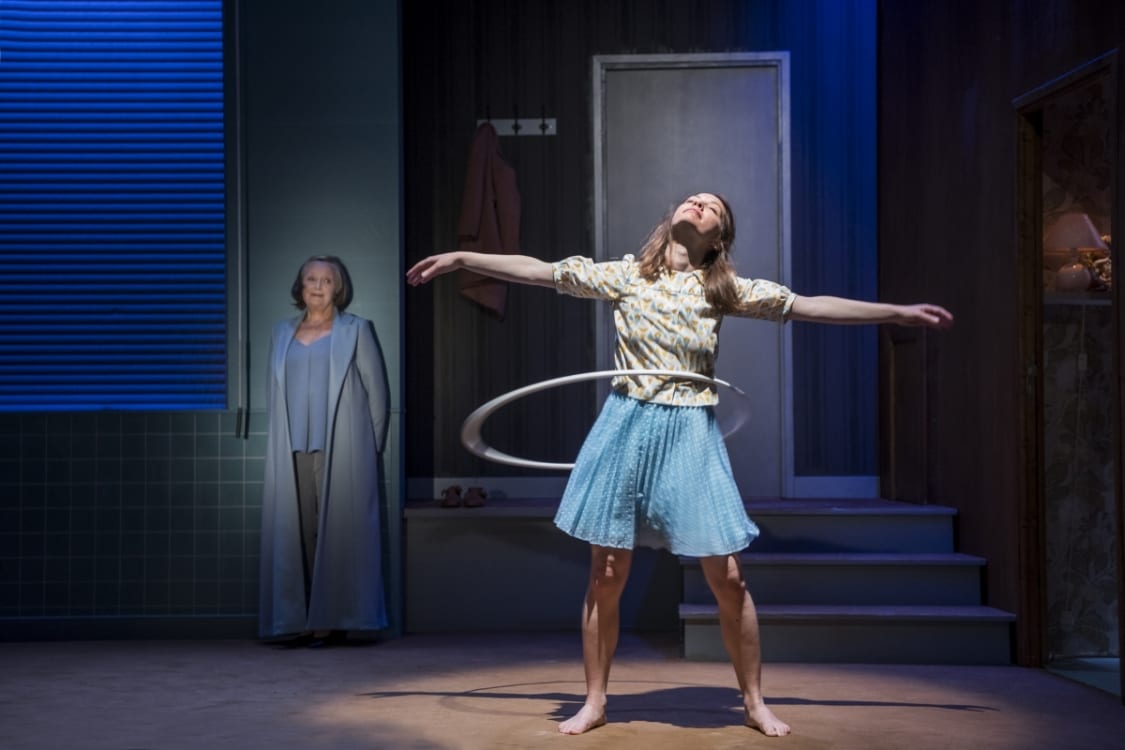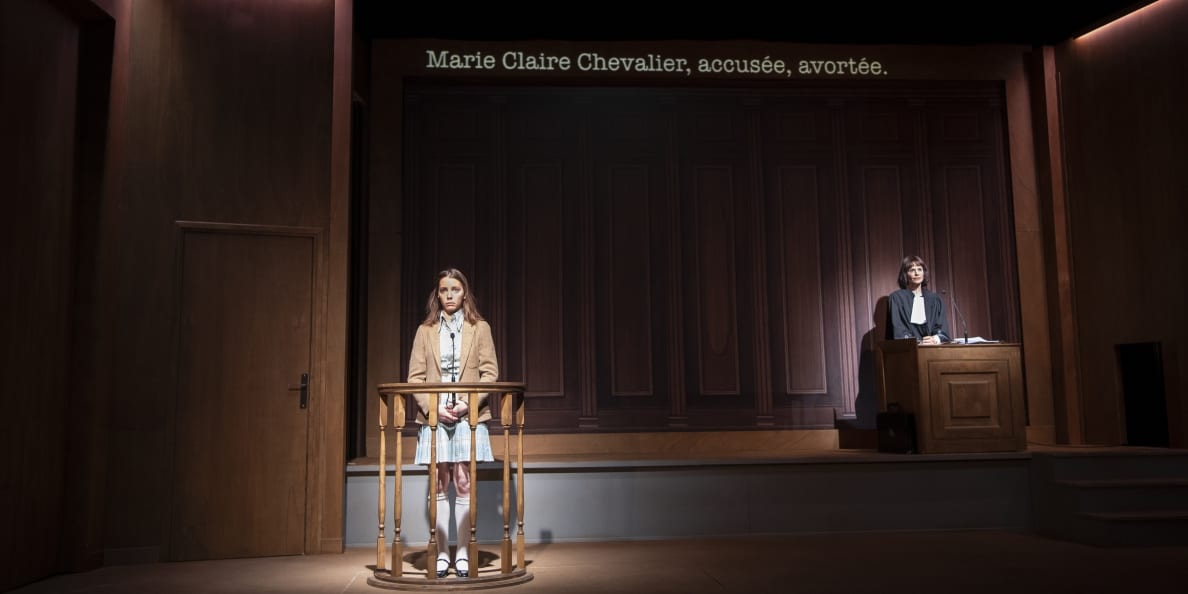Walking on the streets of Paris and seeing ads for a play called Hors la loi, you could think that it is yet another crime story, involving murder or famous drug dealers. It is not. Hors la loi, literally ‘outlaw’, is about someone who was considered a criminal, not so long ago. France, 1972, Marie-Claire, 15 years old, decides to abort after being the victim of a rape. The play is about her, and all the women who fought in the early seventies for their rights to have control over their own bodies.
For her first collaboration with the Comédie Française company, Pauline Bureau chose to tackle a societal problem that put the focus on women. As the character of the 60 years-old Marie-Claire (Martine Chevallier) solemnly says, “It was my story but it became History”.

The theme of the play is interesting and I can only insist on how important it is to talk about these issues and the women and men who fought for their rights. However, the play is too long to be efficient, and I was surprised by some of the director’s choices: neither the rape nor abortion are represented. In the first part of the play, they both happen behind closed doors, and I think that is a shame for a play that intends to free the speech about something that stayed silent for too long. This way, the violence of the act of rape is diminished as it was for too long and still is, and the hidden abortion appears more like a crime than a rebellious, freeing act. In the same way, the 343 Manifesto appears as written words on stage, it is not said aloud during the play, which makes it lose a part of its power.
After a short intermezzo introducing feminist lawyer and activist Gisèle Halimi’s character, the second part of the play is set in a court, during the famous Bobigny trial, that took place in October and November 1972. The victim who is also the defendant, and the witnesses défilent in front of the court, backed by the fierce lawyer Gisèle Halimi. In the beginning, the display is interesting because after being a silent witness to rape and abortion, the spectator becomes the judge and gets to hear what the women have to say in their defence. Unfortunately, this stage play rapidly becomes repetitive and the lack of rhythm makes this trial boring until the penultimate catchy monologue pronounced by Gisèle Halimi.
Françoise Gillard, as the great lawyer, brings positive energy to a play that is not bold enough. I also have to mention that Claire de La Rüe du Can’s acting as the teenage Marie-Claire is hauntingly powerful. Her energy at the beginning is brutally stopped after her rape and she becomes a ghost, hypnotizing the audience with her hollow look.
The end of the play reunites the two actresses who embody Marie-Claire and adds a bit of emotion to end the play properly. When the lights go off, some women instantly stand up to applause, seeming grateful for this play that dares to (timidly) represent what has been hidden for too long.

